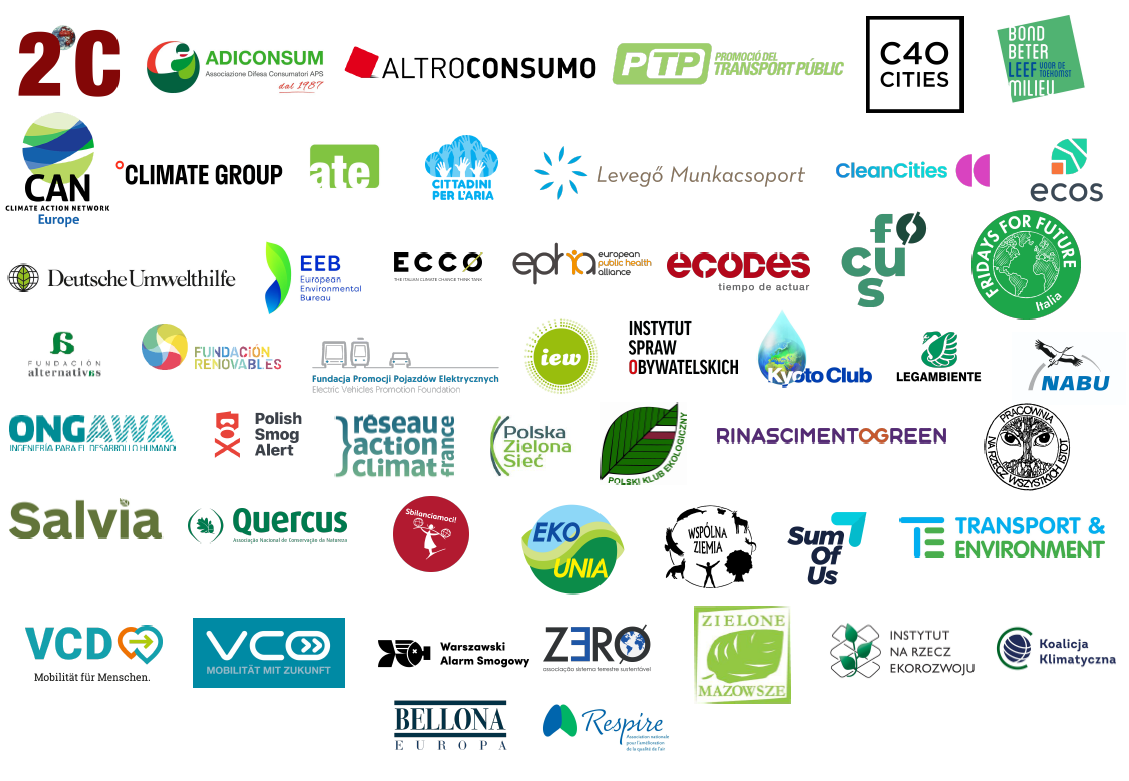Next week’s vote on EU clean car rules could help pave the way to European energy independence and make significant gains for the environment, consumers, and public health, 51 NGOs have said in a public appeal to MEPs today. Setting higher CO2 targets for carmakers this decade will speed up Europe’s transition to electric cars, which – along with fewer private car journeys and a more efficient and shared mobility system – is key to decarbonising road transport, the groups say.
“Electric cars consume zero oil, and so are a key structural measure to wean Europe off its oil habit,” the groups tell MEPs. They add: “As EU policy makers, you have the opportunity – via the revision of the EU CO2 standards for cars and vans – to decide how quickly Europe transitions away from the combustion engine and towards an affordable emission-free mobility, with all the additional benefits that will bring for the environment, drivers, and public health.”
To have a fighting chance of tackling climate change, and to clean up air pollution while ending Europe’s dependence on fossil fuels, the groups call on MEPs to:
1. Support an EU-wide phase-out date for sales of new internal combustion engine cars and vans (including plug-in hybrids) as close to 2030 as possible but no later than 2035;
2. Put in place significantly higher CO2 reduction targets for carmakers in both 2025 and 2030, with an additional interim target of at least 45% in 2027;
3. Reject fake ‘green’ solutions – such as e-fuels – being pushed by the oil and gas industry that would allow carmakers to buy fuel credits to comply with their CO2 targets;
4. Stop giving carmakers the so-called ZLEV bonus, which significantly weakens their CO2 targets if they sell zero and low-emission vehicles – cars that they have to produce anyway;
5. End the free CO2 pass for heavier cars by removing the mass adjustment factor which is one of the principal reasons for the surging sales of highly-polluting SUVs.
The European Parliament will vote on 7 June on the car CO2 law. MEPs will be asked to raise standards for carmakers in the 2020s and 2030, which the NGOs see as crucial to both ensuring carmakers deliver on their EV promises and enabling EU countries to reach their national climate goals. By speeding up the mass production of electric cars, it will also lead to EVs becoming cheaper to buy on average than petrol equivalents by the middle of this decade.
A proposal to end the sale of combustion engine cars and vans in 2035 will enable all cars and vans on the road to be zero emissions by 2050, which the groups say is the bare minimum for Europe to become climate neutral by that date. But any loopholes allowing cars burning e-fuels to remain on sale would lead to an unenforceable law that would drive up costs for consumers and car companies while diverting the limited amounts of synthetic fuels available away from more hard-to-decarbonise transport such as planes and ships. Cars powered by synthetic fuel also emit as much poisonous nitrogen oxides (NOx) as fossil fuel engines.
Passenger cars and vans are the source of 15% of all Europe’s CO2 emissions and are the single largest cause of toxic nitrogen dioxide pollution, which cuts short the lives of over 40,000 Europeans every year.
Read more:
Letter: Civil society calls on EU policymakers to support more ambitious car and van CO2 targets
UPDATE: 53 NGOs have now joined the public appeal.



